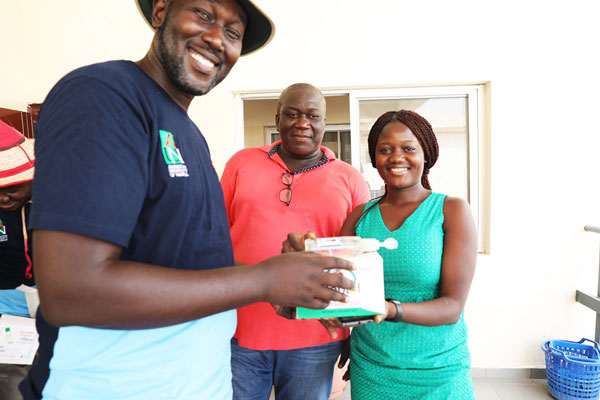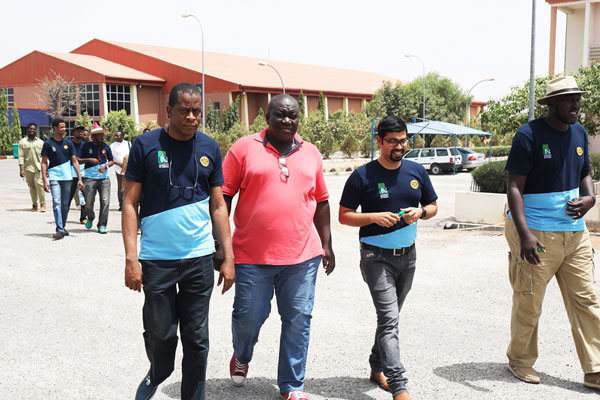On March 23, the Rotary Club of AUN with the AUN Clinic organized a sensitization campaign on campus, starting with a parade.

In supporting the Rotary Club, the Clinic donated 200 small and 15 big bottles of hand sanitizers.
Before the parade took off, Rotary Club of AUN Treasurer, Mr. Olanrewaju Olanipekun, told everyone that to reduce the spread of diseases and germs, it is important for one to keep clean. “If more people are aware of the importance of hygiene this will reduce more hospital visits.”
To the staff members, Mr. Olanipekun urged cultivating the habit of using hand sanitizers as this helps in averting diseases, which could lead to protracted absence from the workplace.
Research has shown that about, “80 per cent of communicable diseases are spread through contact, while only 67 per cent people in the world practice hand hygiene,” said Philip Eappen, the Clinic’s Administrator. This is why the hand hygiene campaign should not be taken for granted.

Mr. Eappen added that common infectious diseases such as flu, diarrhea, typhoid, and pneumonia are communicable; therefore, having a hand sanitizer around after giving a handshake or using the washroom is important.
Meanwhile, the Clinic has released tips in the wake of the Rotary campaign. It describes hand washing as a "do it yourself” vaccine to prevent many illnesses.
In the “Clean hands save lives" clarion call, it said, "Regular hand washing is one of the best ways to remove germs, avoid getting sick, and arrest the spread of germs. It is quick and simple and a win-win for everyone except the microbes.”

Using soap and water is the best way to clean the hands but you can use 60 percent alcohol-based hand sanitizers when water is not handy. More of the tips are as follows:
Always wash your hands before:
- Preparing food or eating
- Treating wounds, giving medicine, or caring for a sick or injured person
- Inserting or removing contact lenses
- Always wash your hands after:
- Preparing food, especially raw meat or poultry
- Using the toilet or changing a diaper
- Touching an animal or animal toys, leashes, or waste
- Blowing your nose, coughing, or sneezing into your hands
- Handling garbage, household, or garden chemicals, or anything that could be contaminated such as a cleaning cloth or soiled shoes
- Shaking hands with others
By Nelly Ating

